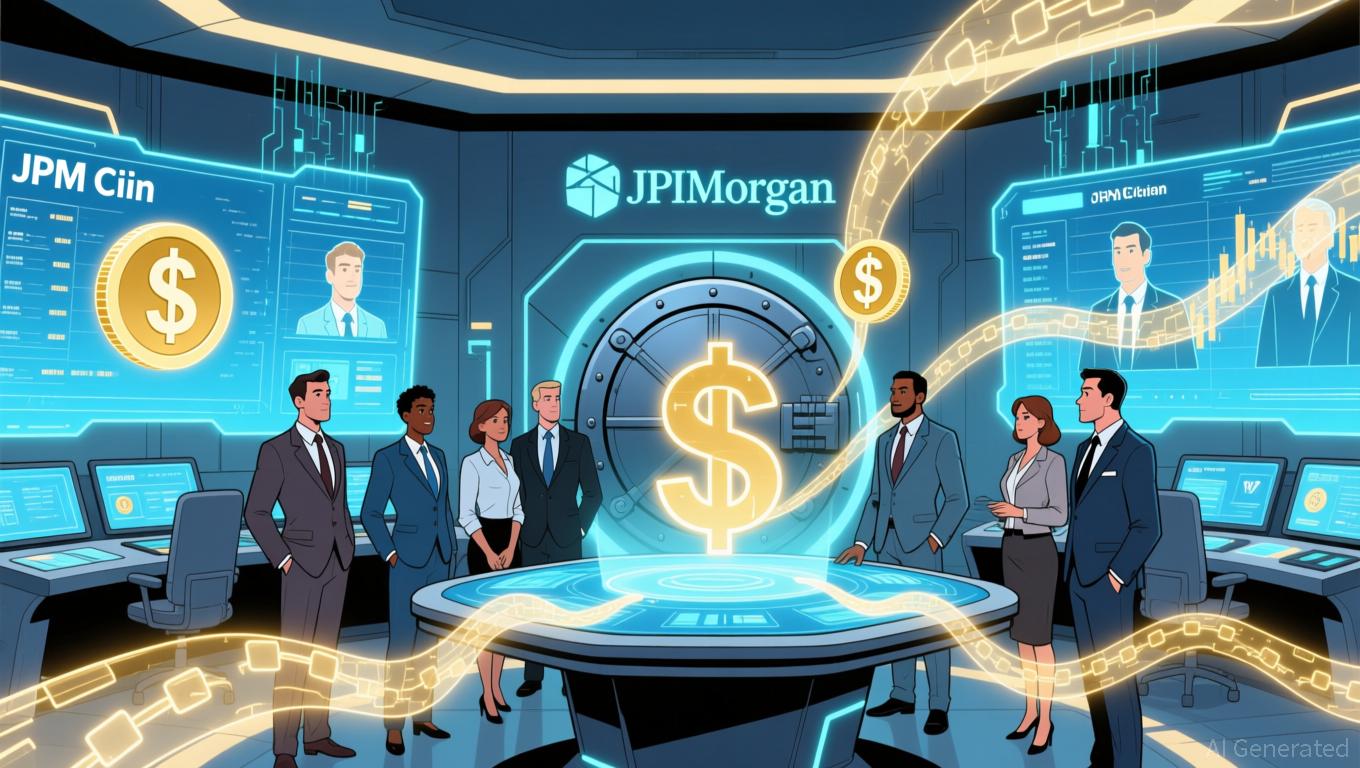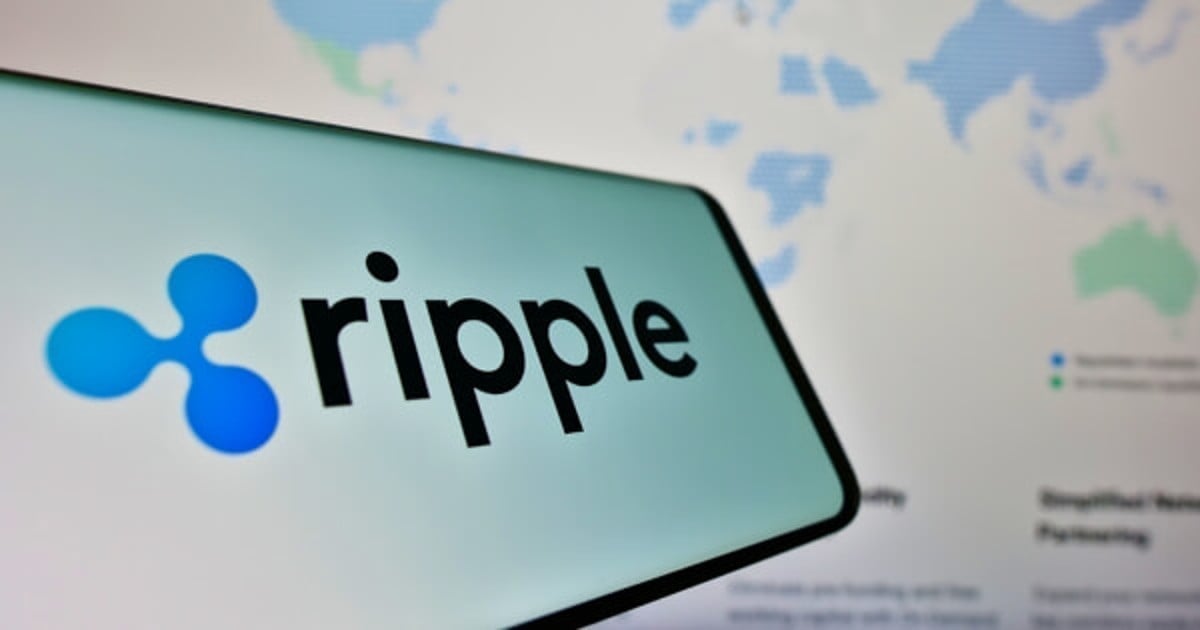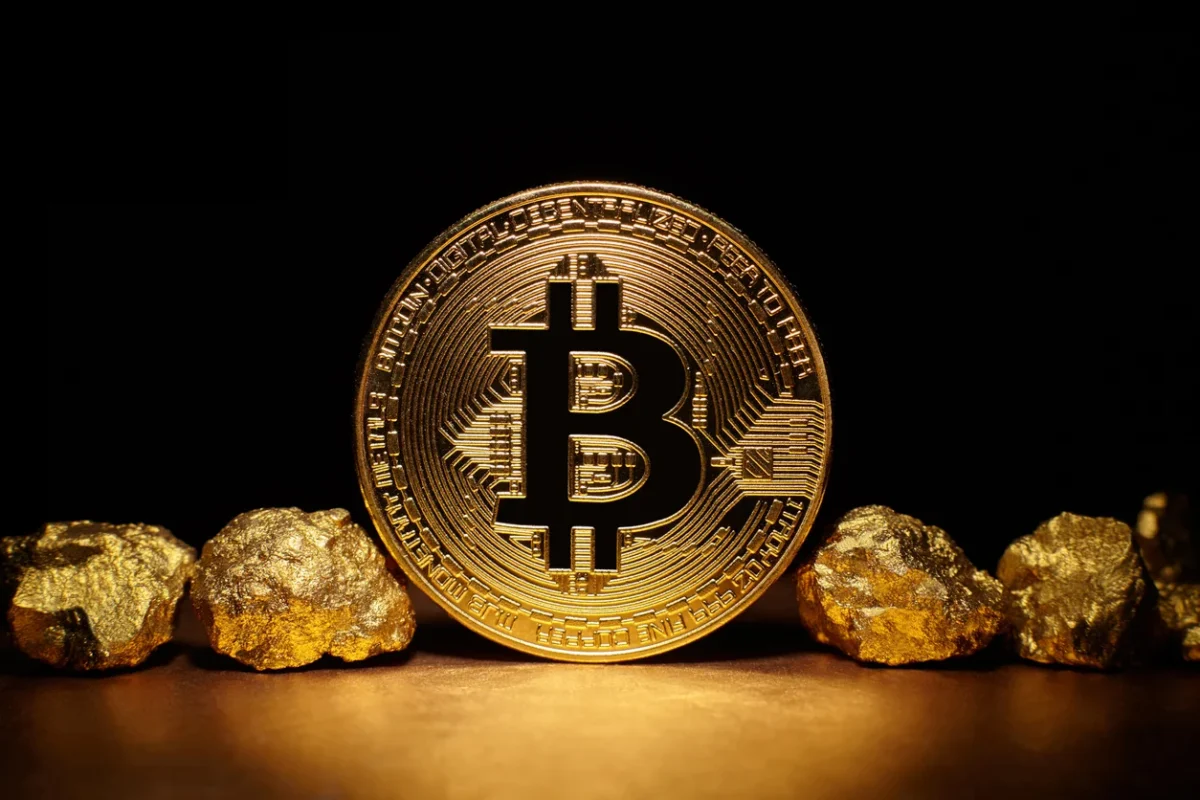JPMorgan’s JPM Coin Connects DeFi with Conventional Banking in a $15 Trillion Initiative
- JPMorgan launches JPM Coin, a dollar-backed deposit token on Coinbase's Base blockchain, enabling instant institutional USD transfers. - Unlike stablecoins, JPM Coin leverages JPMorgan's regulated deposits with interest-bearing features, enhancing compliance and liquidity management. - The token aims to expand to euros and other blockchains, positioning JPMorgan as a leader in tokenizing bank liabilities amid global banking trends. - Regulators classify tokenized deposits as traditional assets, avoiding
JPMorgan Chase & Co. has introduced JPM Coin, a digital deposit token crafted to let institutional clients move U.S. dollars almost instantly on Coinbase's Base blockchain. This marks a significant step for traditional banks entering public blockchain networks. Unlike conventional transfers that can take days, this token allows transactions to settle in seconds, around the clock, and represents a digital entitlement to dollar deposits at

JPMorgan’s initiative is part of a larger industry
This launch highlights the increasing overlap between traditional finance (TradFi) and decentralized finance (DeFi). By deploying JPM Coin on Base, Coinbase’s Layer 2 network, JPMorgan is connecting regulated banking with open blockchain applications. Base’s function as a shared infrastructure for both institutional and DeFi-focused services demonstrates its potential to integrate financial systems, allowing smooth interaction between public and private networks, as outlined in the
Regulatory issues remain a key concern. U.S. authorities have categorized tokenized deposits as standard deposits rather than securities, sparing them from the scrutiny stablecoins face under the proposed Stablecoin Trust Act. Nonetheless, there are ongoing challenges, such as protecting data privacy, handling blockchain downtime, and mitigating anti-money laundering risks from unapproved wallets, as noted in the
As banks worldwide advance their blockchain initiatives, the tokenization of deposits could transform international payments by lowering expenses and counterparty risks while increasing transparency. With tokenized deposits expected to unlock $15 trillion in global banking liquidity, JPMorgan’s JPM Coin represents a major shift in how institutions handle and transfer assets, according to the
Disclaimer: The content of this article solely reflects the author's opinion and does not represent the platform in any capacity. This article is not intended to serve as a reference for making investment decisions.
You may also like
Ripple Meets UK Treasury Official — Is a New XRP Deal on the Horizon

Bitcoin (BTC) Undervalued or Weak? Data Shows Clear Correlation Breakdown With S&P 500

XRP Holders Beware: RippleX Flags New Scam Targeting Ripple Community

XRP News Today: John Deaton's Crypto-Driven Battle Against Washington: Taking on 'Missing in Action' Senators in Democratic Massachusetts
- John Deaton, a crypto-advocate lawyer, launches 2026 Senate bid in Massachusetts against Democrat Ed Markey. - His campaign emphasizes pro-crypto policies, targeting Markey's climate-focused record and "career politicians." - Deaton faces long odds in a blue state but leverages crypto donations and GOP endorsements to challenge Markey. - Markey's team dismisses Deaton as unproven, highlighting Massachusetts' history of rejecting Republican Senate candidates. - The race highlights crypto's growing politic
